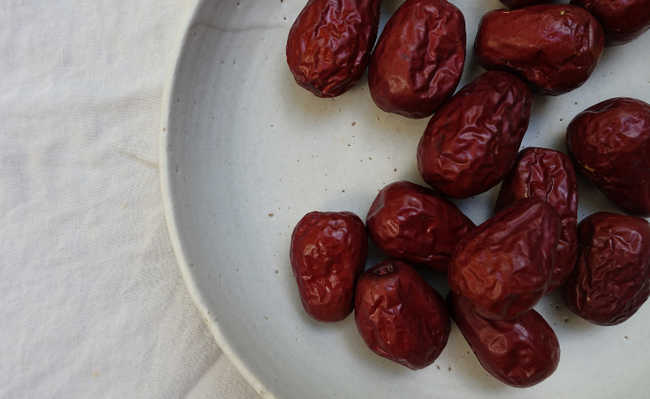Date: benefits proven by science
Consuming dates is good for your health. Understand its benefits and add this fruit to the menu

The date is a fruit that grows on the date palm, a palm that has been cultivated for millennia. Its origin is unknown, but it is believed to have originated in North Africa or Southeast Asia. The date palm has a high diversity of texture, shape, color and chemical composition, depending on the genotype, environment, season and cultivation practices. The benefits of dates make it a very healthy food. In addition to being appreciated in the kitchen for its delicious flavor, it is a natural fruit substitute for caramel. Check out the benefits of dates and why it's a good idea to add this fruit to your menu.
Benefits of the date
A review of studies, published in the journal International Journal of Food and Nutritional Sciences, concluded that the date is a fruit with nutritional, health and socioeconomic benefits. The review concluded that dates contain anthocyanins, phenolics, sterols, carotenoids, procyanidins and flavonoids, compounds known to have multiple health benefits. These compounds help to eliminate free radicals, have antioxidant, antimutagenic, antimicrobial, anti-inflammatory, gastroprotective, hepatoprotective, nephroprotective, anticancer, antiulcer and immunostimulant actions.

Edited and resized image of Boba Jaglicic, is available on Unsplash
Nutrient source
Date is a great source of nutrients. Although dried dates are more caloric than fresh dates, they have a profile similar to that of dried raisins and figs; they contain some important vitamins and minerals as well as a significant amount of fiber.
- Fiber-rich foods fight diabetes and high cholesterol
- Calories: 277 kcal
- Carbohydrates: 75 grams
- Fiber: 7 grams
- Protein: 2 grams
- Potassium: 20% of the Recommended Daily Intake (RDI)
- Magnesium: 14% of the IDR
- Copper: 18% of the IDR
- Manganese: 15% of the IDR
- Iron: 5% of the IDR
- Vitamin B6: 12% of the RDI
Fiber source
The presence of almost seven grams of fiber in each 100 gram serving of date is a good justification for choosing it as one of your fiber sources. Fiber can benefit digestive health by preventing constipation and promoting regular bowel movements, which contribute to stool formation.
- What is constipation?
In one study, 21 people who ate seven dates a day for 21 days experienced improvements in their stools and had a significant increase in bowel movements compared to not eating dates.
In addition, the fiber in dates can be beneficial in controlling blood sugar as it slows down digestion and helps prevent blood sugar levels from rising too quickly after eating.
Antioxidant Source

Edited and resized image of Mona Mok, is available on Unsplash
Date is also rich in antioxidants. Antioxidants protect cells from free radicals, unstable molecules that can cause harmful reactions in your body and lead to disease.
Compared to similar types of fruit, such as figs and prunes, dried dates have a higher amount of antioxidants.
- Antioxidants: what are they and in what foods to find them
- What are free radicals?
good for the brain
Laboratory studies have concluded that date consumption is good for reducing inflammatory markers, such as interleukin 6 (IL-6), in the brain. High levels of IL-6 are associated with an increased risk of neurodegenerative diseases such as Alzheimer's disease (see studies about 1, 2).
In addition, animal studies have shown that consumption of dates is good for reducing the activity of beta-amyloid proteins, which can form harmful plaques in the brain.
When plaques build up in the brain, they can disrupt communication between brain cells, which can lead to neuron death and Alzheimer's disease (see study about it here: 3).
Another animal study found that mice fed chow containing dates had significantly better memory and learning abilities, as well as fewer anxiety-related behaviors, compared to non-eating mice.
Date's benefits for the brain have been linked to the antioxidants present in the fruit, known to reduce inflammation.
However, human studies are needed to confirm the benefits of the date for brain health.
date in pregnancy
The date has the potential to promote and facilitate late natural birth. Eating dates in the last weeks of pregnancy can promote cervical dilation and decrease the need for induced labor. Fruit may also be useful in reducing labor time, according to the study.
In another study, 69 women who consumed six units of date per day for four weeks before the ideal delivery date were 20% more likely to go into labor naturally and were in labor for significantly less time than those pregnant women who didn't consume them.
Another study of 154 pregnant women found that those who ate dates were much less likely to have induced labor compared to those who did not.
A fourth study found similar results in 91 pregnant women who consumed 70 to 76 grams of date daily starting at week 37 of pregnancy. They spent four hours less in labor compared to those who didn't eat dates.
natural sweetener
Date is a source of fructose, a natural type of sugar.
For this reason, dates are very sweet and have a subtle flavor similar to caramel. They are great substitutes for white sugar in recipes because of the nutrients, fiber and antioxidants they provide.










